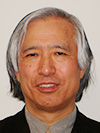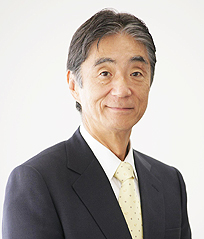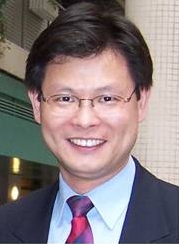Keynote speakers
 AMT 2013 Keynote Speaker:
AMT 2013 Keynote Speaker:
Yuzuru Tanaka
Graduate School of Information Science and Technology
Hokkaido University, Japan
http://www.gcoe.ist.hokudai.ac.jp/arts/english/member/research02.html
Meme Media and Knowledge Federation in the Age of Big Data
Abstract:
Meme media research started with the proposal of the synthetic media architecture IntelligentPad and its implementation in Smalltalk 80 in 1989. This architecture was then reoriented in 1993 to meme media and meme pool architectures. The dissemination of Web browsers around that time made us consider how to use the Web as a world-wide meme pool, i.e., a repository of meme media objects. Then we came across the problem of how to wrap a whole Web resource like Web applications or Web services and/or an embedded Web resource into a meme media object. Once wrapped, such resources can be easily combined together to interoperate with each other. This idea opened a new vista of knowledge federation, i.e., dynamic federation of knowledge resources over the Web. Knowledge federation requires two new technologies, i.e., one to extract an embedded knowledge resource from a Web document, and the other to wrap the extracted resource into a meme media object. This idea, however, requires two different environments, i.e., the Web environment and a meme media system environment. The ideal solution was to unify these two environments, which resulted in the proposal of the Webble World system. This talk will briefly review the history of our R&D on meme media and knowledge federation, and give their new perspectives in the age of big data by showing the two large-scale practical applications of the Webble World technology. One is the integrated visual environment for supporting different stages of clinical trials on cancer including the design of the trial master plan and the CRF (Case Report Form) of each treatment event by the trial chairman, the guidance of patient treatment and data input during the treatment of each patient by a clinician, and the exploratory visual analytics of the accumulated trial data for data analysts to find out better personalized medicine. The other is the optimization of the snow plowing and removing in Sapporo City through the exploratory visual analytics of a variety of retrospective and real-time data including probe car data, probe person data, meteorological data, snow-plowing and removing records, traffic accidents, tweets, etc. The talk will focus on the ill-formed nature of these problems, the necessity of exploratory visual analytics with an open large library of tools and services and their improvisational federation capability, and how meme media and knowledge federation will give answers to these requirements in the age of data.
Speaker Biography:
Yuzuru Tanaka has been a full professor of computer architecture at the Department of Electrical Engineering (1990-2003), then of knowledge media architecture at the Department of Computer Science, Graduate School of Information Science and Technology (2004- ), Hokkaido University, and the director of Meme Media Laboratory (1995-2013), Hokkaido University. He was also a full professor of Digital Library, Graduate School of Informatics, Kyoto University (1998-2000), has been an adjunct professor of National Institute of Informatics (2004- ), and is also an affiliated scientist of FORTH (Institute of Computer Science, Foundation for Research and Technology-Hellas). From 2013, he is working as the program officer of a new 8 year CREST program of JST on big data application technologies, and also as an education and research councilor of Research Organization of Information and Systems consisting of seven national research institutes and centers in Japan. He is also one of the three series editors of Springer’s LNAI series. His research areas included multiprocessor architectures, database schema-design theory, database machine architectures, and full text search of document image files. His current research areas include meme media architectures (a component-based media architecture for the reediting and redistribution of knowledge resources among people), knowledge federation frameworks, proximity-based federation of smart objects, and their application to digital libraries, e-Science, explorative visual analytics for clinical trial big data, and a social cyber-physical system for optimizing complex social system services such as snow plowing and removing in Sapporo and for disaster management and response. He worked as a visiting research fellow at IBM T.J. Watson Research Center (1985-1986), is a fellow of both Information Processing Society of Japan and Japanese Society of Software Science.
Special AMT-BHI 2013 Joint Keynote:

Professor Yuichiro Anzai
President, Japan Society for the Promotion of Science, Japan
Title: Human-Robot Interaction: Our Experience Since 1991
AMT 2013 Keynote Speakers: | ||
 Yuzuru Tanaka Hokkaido University, Japan |
 Carl K. Chang Iowa State University, USA |
 Andrzej Skowron Warsaw University, Poland |
BHI 2013 Keynote Speakers: | ||
 Shinsuke Shimojo California Institute of Technology, USA |
 Marcel A. Just Carnegie Mellon University, USA |
 Jiming Liu Hong Kong Baptist University, HK SAR |